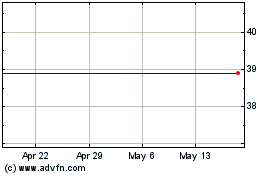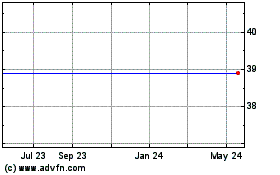Uncertainty continues to loom over the PC market. The rise of
next generation ultra-portable gadgets (mainly tablets) has taken
the market by storm, diverting consumer spending dollars from
traditional desktops and notebooks.
The success of Apple Inc.’s (AAPL) iPad has
convinced the world that a thin rectangle portable touch screen
with long battery life is enough to take care of most of our daily
computing needs. While there was initial opinion that tablets were
market expansive and there could be some truth to this, researches
are now forecasting that iPad unit sales will grow at an average
annual rate of more than 50% from this year to 2015. The fact that
tablets are much cheaper is obviously playing a role as well.
During the second quarter of 2011, PC shipments in the U.S.,
Western Europe, U.K., France and Germany reduced 5.6%, 18.9%,
15.0%, 17.8%, 13.3%, respectively on a year-over-year basis, due to
weak consumer demand.
The picture for the PC market has become clearer, with the
research firm Gartner Inc.’s (IT) recently lowered
forecast. For fiscal 2011, Gartner’s growth estimate went from 9.3%
to 3.8%, based on the sluggish economic growth in Western Europe
and the United States (an offshoot to the debt crisis), and the
growing demand for media tablets, mainly iPad.
The macro concerns in the two largest and most mature markets
had a severe impact on corporate and government IT spending, which
also influenced Gartner’s forecast. The research firm currently
expects the PC market to grow 10.9% in 2012, down from the original
projection of 12.8% growth.
Vital Statistics
The PC market in developed markets is mature. Moreover, the
commoditization of PCs has resulted in price wars. The players can
only adjust product prices in an effort to maintain their
respective market shares. The advent of lower-cost alternatives is
not making things any better. In this backdrop, most of the growth
in traditional PCs is in fact coming from emerging markets, where
pricing is an important consideration deciding the purchase.
As a result, a number of Asian companies, such as Acer, Lenovo
and Samsung, with significantly lower-cost manufacturing
capabilities have started making headway. The many pressures on
pricing have made PCs an essentially low-margin business.
The softening of demand due to the greater-than-expected
popularity of tablets and the Japan crisis has also resulted in
some channel inventory. Accordingly, information technology (IT)
distributors such as Ingram Micro Inc. (IM),
Arrow Electronics Inc. (ARW) and Tech Data
Corp. (TECD) are all seeing inventories piling up.
During the second quarter of 2011, customers placed orders ahead
of demand in order to minimize potential disruptions related to the
earthquake in Japan. The sector is currently looking to cut the
level in the upcoming quarters.
A decline in demand from other factors could lead to a more
aggressive reduction in inventory, posing additional risk to the
component companies. This could in turn result in protracted
weakness in the industry, until the excess is burnt off. The silver
lining is the 2011 holiday season, which could help the process if
orders are cut significantly..
How the Industry Stalwarts Are Reacting
Hewlett-Packard Co. (HPQ) has maintained its
leadership position in worldwide PC shipments for many years. But
margins in the Personal Systems Group have lagged other areas of
its business. The segment generated single-digit margin expansion
in the last few quarters, less than any of the other segments.
Additionally, H-P is also steadily losing share to its Asian
competitors, which are flooding the market with a variety of
lower-cost devices. All these have forced H-P to opt for a segment
spin off.
H-P is not the first to take this route. In 2005, IBM
Inc. (IBM) offloaded its PC unit to China’s Lenovo Group
Ltd.
If H-P’s PC business sell-out plan works out, it will create a
bigger opportunity for not only another tech giant Dell
Inc. (DELL), but also for Asian manufacturers ASUSTeK
Computer Inc. and Acer Inc. Five years ago, Dell lost the title of
the world’s top personal computer maker to its longtime rival H-P.
Though Dell now holds the second position in worldwide PC
shipments, it too is suffering from soft consumer demand. But Dell
is well positioned in the enterprise vertical, which could cushion
it to an extent.
Currently, HP has a Zacks #5 Rank, which translates into a
short-term Strong Sell recommendation indicating estimate cuts by
the analysts. Dell has a Zacks #2 Rank, which translates into a
short-term Buy recommendation. Apple has a Zacks #1 Rank, which
translates into a short-term Strong Buy recommendation. IBM has a
Zacks #3 Rank, which translates into a short-term Hold
recommendation.
APPLE INC (AAPL): Free Stock Analysis Report
ARROW ELECTRONI (ARW): Free Stock Analysis Report
DELL INC (DELL): Free Stock Analysis Report
HEWLETT PACKARD (HPQ): Free Stock Analysis Report
INTL BUS MACH (IBM): Free Stock Analysis Report
INGRAM MICRO (IM): Free Stock Analysis Report
GARTNER INC -A (IT): Free Stock Analysis Report
TECH DATA CORP (TECD): Free Stock Analysis Report
Zacks Investment Research
Ingram Micro A (NYSE:IM)
Historical Stock Chart
From Jun 2024 to Jul 2024

Ingram Micro A (NYSE:IM)
Historical Stock Chart
From Jul 2023 to Jul 2024
